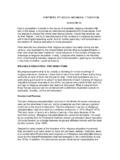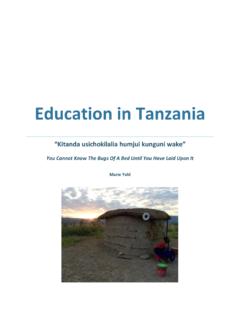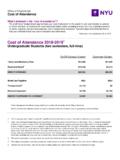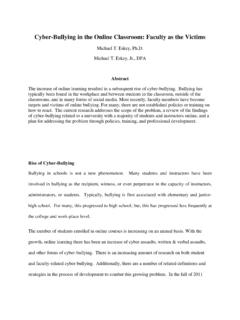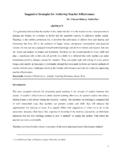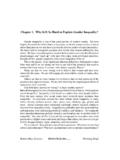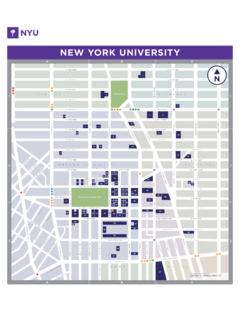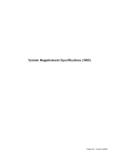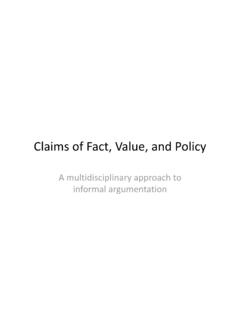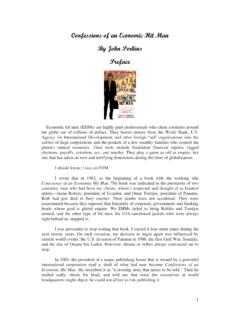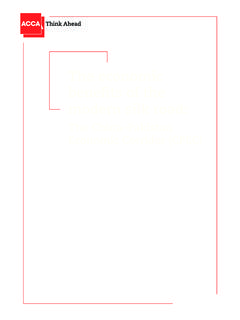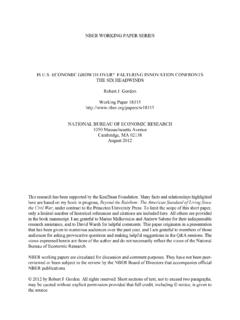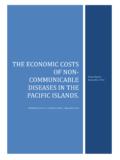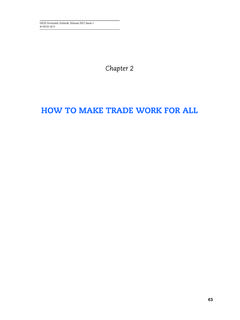Transcription of The Economic Costs of Conflict: A Case Study of the …
1 The Economic Costs of Conflict: A Case Study of the Basque Country Alberto Abadie; Javier Gardeazabal The American Economic Review, Vol. 93, No. 1. (Mar., 2003), pp. 113-132. Stable URL: The American Economic Review is currently published by American Economic Association. Your use of the JSTOR archive indicates your acceptance of JSTOR's Terms and Conditions of Use, available at JSTOR's Terms and Conditions of Use provides, in part, that unless you have obtained prior permission, you may not download an entire issue of a journal or multiple copies of articles, and you may use content in the JSTOR archive only for your personal, non-commercial use.
2 Please contact the publisher regarding any further use of this work. Publisher contact information may be obtained at Each copy of any part of a JSTOR transmission must contain the same copyright notice that appears on the screen or printed page of such transmission. JSTOR is an independent not-for-profit organization dedicated to and preserving a digital archive of scholarly journals. For more information regarding JSTOR, please contact Thu May 24 16:54:29 2007. The Economic Costs of Conflict: A Case Study of the Basque Country This article investigates the Economic effects of conjlict, using the terrorist conjlict in the Basque Country as a case Study .
3 We find that, after the outbreak of terrorism in the late 1960's, per capita GDP in the Basque Country declined about 10. percentage points relative to a synthetic control region without terrorism. In addition, we use the 1998-1999 truce as a natural experiment. We find that stocks of $firms with a signijcant part of their business in the Basque Country showed a positive relative performance when truce became credible, and a negative relative pe$ormance at the end of the cease-$re. (JEL D74, G14, P16). Political instability is believed to have strong of terrorist and political conflict, the Basque adverse effects on Economic prosperity.
4 How- Country had dropped to the sixth position in per ever, to date, the evidence on this matter is capita GDP.' During that period, terrorist activ- scarce, probably because it is difficult to know ity by the Basque terrorist organization ETA. how economies would have evolved in absence resulted in almost 800 deaths. Basque entrepre- of political conflicts. neurs and corporations had been specific targets This article investigates the Economic impact of violence and extortion (including assassina- of conflict, using the terrorist conflict in the tions, robberies, and kidnappings-for-ransom). Basque Country as a case Study . The Basque Not surprisingly, the Economic downturn suf- conflict is especially interesting from an eco- fered by the Basque economy during those nomic perspective.
5 At the outset of terrorist years has been attributed, at least partially, to activity in the early 19707s,the Basque Country the effect of terrorism. However, little research was one of the richest regions in Spain, occu- has been carried out to assess the Economic pying the third position in per capita GDP (out effects of the ~ o n f l i c t . ~. of 17 regions). In the late 19907s,after 30 years This type of Study is difficult. On the one hand, a pure time-series analysis of the severity of terrorism and the evolution of the Basque * Abadie: John F. Kennedy School of Government, Har- economy will be contaminated by the Economic vard University, 79 John F.
6 Kennedy Street, Cambridge, downturn which Spain suffered during the sec- MA 02138 (e-mail: Gardea- ond half of the 1970's and the first half of the zabal: Departamento Fundamentos del Anfilisis Econ6mico 11, Universidad del Pais Vasco, Avenida Lehendakari 1980's, at the peak of terrorist activity. On the Aguirre 83, 48015 Bilbao, Spain (e-mail: jepgarnaj@ other hand, at the outset of terrorism, the We thank Josh Angrist, Esther Duflo, Jim Basque Country differed from other Spanish Heckman, Miguel H e m h , Miguel Angel Martinez. Adolfo regions in characteristics that are thought to be de Motta, Dani Rodrik, Gonzalo Rubio, Emmanuel Saez, related to potential for Economic growth.))
7 There- Todd Sandler, Jim Stock, Jaume Ventura, Luis Viceira, Richard Zeckhauser, and seminar participants at CEMFI, fore, a simple comparison of the evolution of Chicago, HarvardMIT, the University of California-Santa the Basque economy and the economy of the Cruz, and the 2001 Summer School on Polarization and rest of Spain would not only reflect the effect of Conflict in San Sebastian for helpful comments and discus- terrorism but also the effect of pre-terrorism sions. Thanks also go to an anonymous referee for helpful and constructive suggestions. David L6~ differences in Economic growth determinants. Tapia, and ~ e m a n d o k u s e l lhelped us oitain the financial data.
8 Henry Aray, Francisco Blanch, Sara Piccicuto, and Elena Zoido provided expert research assistance and con- See Fundaci6n BBV (1999). tributed comments. Gardeazabal thanks the Department of 'Notable exceptions are Walter Enders and Todd Economics at the University of California-Santa Cruz for its Sandler (1991, 1996). who Study the effects of terrorism on hospitality while part of this work was canied out. tourism and foreign direct investment in Spain. 113 THE AMERICAN Economic REVIEW MARCH 2003. Our analys~srests on two different strategies. variables techniques can be used to correct for First, we use a combination of other Spanish reverse causation.
9 However, the validity of in- regions to construct a "synthetic" control region struments in cross-country regressions has often which resembles relevant Economic character- been questioned (see, , N. Gregory Mankiw, istics of the Basque Country before the outset of 1995). Another potential shortcoming of studies Basque political terrorism in the late 1960's. based on country-level data is that political con- The subsequent Economic evolution of this flicts in different countries may be radically "counterfactual" Basque Country without ter- different in nature. Such heterogeneity may cre- rorism is compared to the actual experience of ate problems when comparing the experiences the Basque Country.
10 We find that, after the of different countries and interpreting the results outbreak of terrorism, per capita GDP in the (Jonathan Temple, 1999, discusses heterogene- Basque Country declined about 10 percentage ity issues in cross-country regressions). points relative to the synthetic control region. Case studies, like the one presented in this Moreover, this gap seemed to widen in response article, look like the natural avenue to validate to spikes in terrorist activity. The second part of or refute the results given by cross-country stud- this Study uses the unilateral truce declared by ies. Heterogeneity issues are circumvented here ETA in September 1998 as a natural experiment by focusing on a particular conflict: the terrorist to estimate the effects of the conflict.
